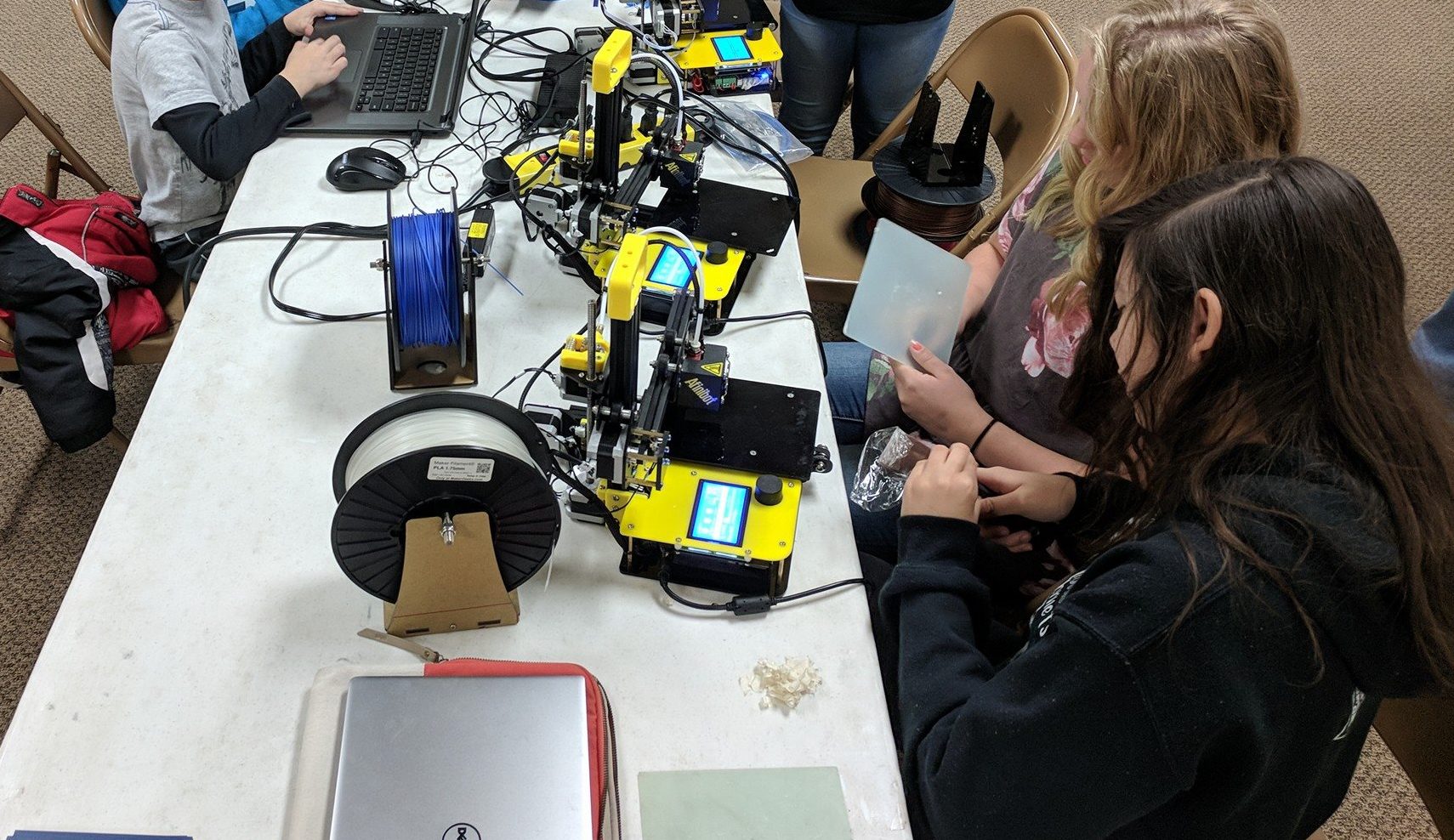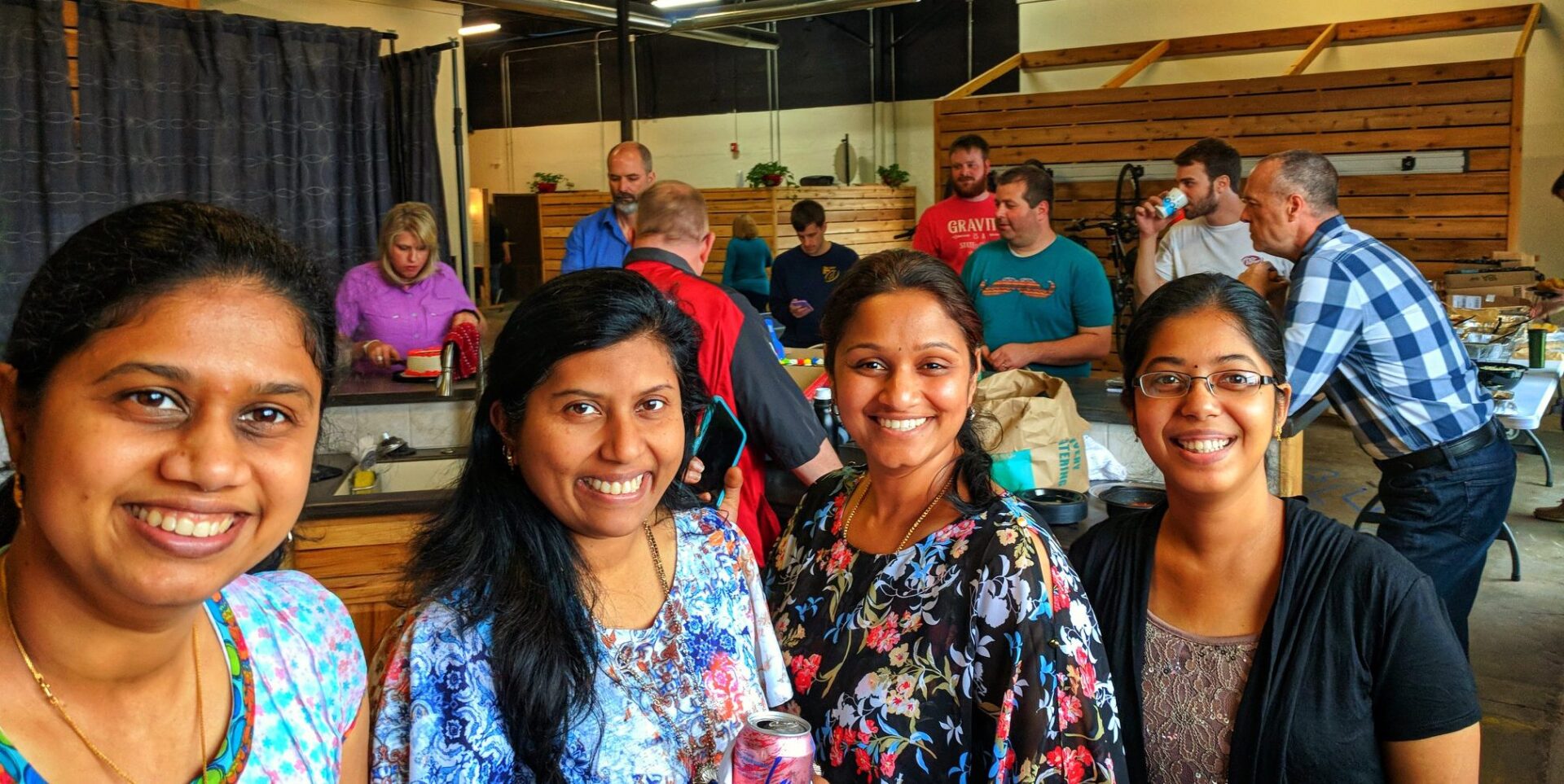There’s no denying that the technology industry has a nationwide diversity and inclusion problem.
In 2015, women made up less than 24% of those employed in STEM occupations. (U.S. Department of Commerce) Minorities also continue to have low representation in technical positions; Just 4% of Facebook engineers are black or Hispanic. (CNBC)
In Northwest Arkansas, businesses and schools recognize that more needs to be done to support women and minorities who want to develop a career in technology. Many have already made great strides to improve diversity in STEM across three key areas: K-12 education, higher education, and the technology sector.
From AR Girls Code to Women In Technology conferences, here are some ways Northwest Arkansas is promoting the inclusion of women and minorities in technology.

Girls in STEM
Young Girls Showing Up in STEM Classes
NWA3D, an educational 3D printing company based in Fayetteville, has made it their mission to make 3D printing accessible and easy for student and teachers.
Drew Wallis, NWA3D Co-Founder and Director of Education, believes 3D printing provides children with a range of valuable skills.
“Students learn creativity and problem-solving through digital design, and mechanical troubleshooting with the printer itself,” he said, “All of these skills can be applied to other fields and applications such as animation, VR, or other computer aided manufacturing processes.”
Providing students with these opportunities, regardless of gender, race or income, has had a positive impact on diversity and inclusion.
“We work primarily with rural schools who don’t have massive budgets. Many of our student trainings are with kids that have barely heard of 3D printing, much less seen a printer in-person. Access to affordable technology, like 3D printing, has leveled the playing field for millions of children.”
Over the years, Wallis has witnessed STEM-based opportunities become more inclusive of girls.
“In the last two years, we’ve hosted a 3D printing competition for the EAST Initiative [Education Accelerated by Service and Technology]. Classes in Arkansas challenge students to use 3D printing in a project that makes a positive impact on their community. In the first year, nearly all of the teams were made up of boys. However, this year over 60% of the teams included girls or were all-girl teams!”
There are many great organizations in Northwest Arkansas that are focused on increasing access to technology and developing tech skills. AR Girls Code by Startup Junkie, Girls Who Code, the Girl Scout Diamonds, and Girls in STEM by Arkansas STEM Coalition are just a few who aim to increase the participation of women and girls in the STEM field.
University of Arkansas
UARK Program and Conference Focused On Supporting Students of Color and Women in Tech Careers
For the University of Arkansas, technology and business have always been a priority thanks to its proximity to Walmart HQ. In recent years it has expanded its offerings to focus more on diversity and inclusion.
The University of Arkansas Technology Awareness Program (TAP) offers students of color the chance to participate in a week-long summer residency in the field of computer information systems.
According to their website, “The program is designed to demonstrate how technology is utilized to assist business organizations in their decision-making process to operate more effectively. Additionally, the students will have opportunities to interact with minority professionals from business and government, as well as visit and observe them in their work environment.”
In April, the University of Arkansas hosted a two-day Women in Information Technology Conference that attracted over 280 attendees. Its theme for 2018 was “Sustaining Growth for Women in the Field”, with sessions covering a range of topics from Blockchain to Innovations in Predictive Data Modeling. Almost all of the speakers were female leaders in technology.

Business
Businesses Commit To Change From Within Their Organizations
Perhaps the greatest achievement of all has been the many businesses who have stepped up to make change happen in the workplace.
RevUnit
Tabitha McFadden, VP of People Operations at Revunit, and recent recipient of the NWA Business Journal 40 under 40, shared how RevUnit is working to increase the number women and minorities pursuing a career in technology.
“One of the things we have done is create a Diversity and Inclusion Council within the company. We wanted to gain feedback from our team members and understand what was important to them in that process,” she said.
“At RevUnit we’ve created a place where people wanted to come to work and be themselves, feel safe and feel like they can trust the person next to them and be who they are. Through that we have intentionally broadened our recruiting pool.”
Unconscious bias is an issue that RevUnit’s Diversity and Inclusion Council decided to tackle head on, with employee training and a review of how they process job applicants.
“We run our job descriptions through a language filter, which identifies the masculinity or femininity of words and calls out potential biases in job descriptions. Terms like “ninja” or “nerd” for example, can carry connotations and so this filter helps us identify these biases. We’ve done things like remove photos from our applicant tracking system so that it doesn’t accidentally introduce a bias.”
Flexibility is another issue that specifically impacts women with families. In 2017 RevUnit completed a FlexCert certification that helps organizations implement workplace flexibility.
Their blog post on the certification noted the importance of employee work-life balance, “As we continually work to make RevUnit a diverse and inclusive workplace, we recognize the importance of weaving flexibility throughout our organization.”
McFadden also serves on the Women In Technology Conference committee. The day-long conference is part of the annual NWA Technology Summit. Participants hear from inspiring speakers on thought leadership, innovation, opportunities and challenges for women in today’s technology workforce.
“Many women who attend are somehow involved in technology and this conference exposes them to all the new opportunities that are out there. It also offers opportunities for women in the field to connect and create partnerships too.”
”There’s a lack of real role models. Girls and women should be able to point to a female technology leader and say, ‘I want to be like them.’ We want to do all that we can to shift that paradigm.
April Seggebruch
Business
Movista
April Seggebruch, Co-Founder and EVP of Movista, is deeply passionate about women in technology.
“It floors me how low the numbers of women in technology there are,” she said, “Movista has twice the industry’s average of women employed by a technology company and we’re proud of this.”
“We go above and beyond to provide opportunities for our employees, both within and outside of their current roles. It’s important to us that all of our employees enjoy the work they do, and succeed at it. We encourage women at our company to move into roles that might be more technical.”
Seggebruch pointed out an important problem facing girls and women who want to pursue a career in technology.
“There’s a lack of real role models. Girls and women should be able to point to a female technology leader and say, ‘I want to be like them.’ We want to do all that we can to shift that paradigm.”
Seggebruch is certainly leading the way as a role model for women in technology. She admits that she did not have a traditional background in tech, having had marketing roles at Nike and Tyson when she co-founded Movista in 2010. Now she runs Product Development and Deployment of their proprietary field workforce management platform and software application, ONE by Movista.
Walmart
Sarah Daigle, Technical Program Manager at Walmart and Board Member at the New Design School, has spent much of her career advocating for girls interested in the technology space.
“We are talking about the diversity and inclusion issue openly inside of Walmart,” she said, “‘Lean In’ circles, and other resource groups have the support of managers throughout the company. Walmart is doing their part to help promote women into leadership positions.”
Every year Walmart publishes the Culture, Diversity & Inclusion Report to showcase their efforts to improve workplace experiences for women and minority in Walmart corporate offices and their stores.
According to their 2017 report, 43% of Walmart associates are people of color, whilst 43% of managers are women.
Daigle believes that Walmart has made improvements to promote work-life balance, “As more women become managers, directors and VPs level there’s definitely more support. For example, Walmart has additional parental leave coverage for parents who are adopting, and PTO policy that’s very flexible.”
Having owned and worked at startups Daigle believes that one of the keys to encourage women to have careers in technology is to take advantage of technology itself.
“We have all the tools – video conferencing, cell phones, and data plans – to avoid a commute. These tools can become really meaningful. For example, we can help support parents who might need to stay home with a sick child and still allow them to remotely participate in meetings. This is a gift that technology gives us to facilitate more balance in our lives at work and at home.”












